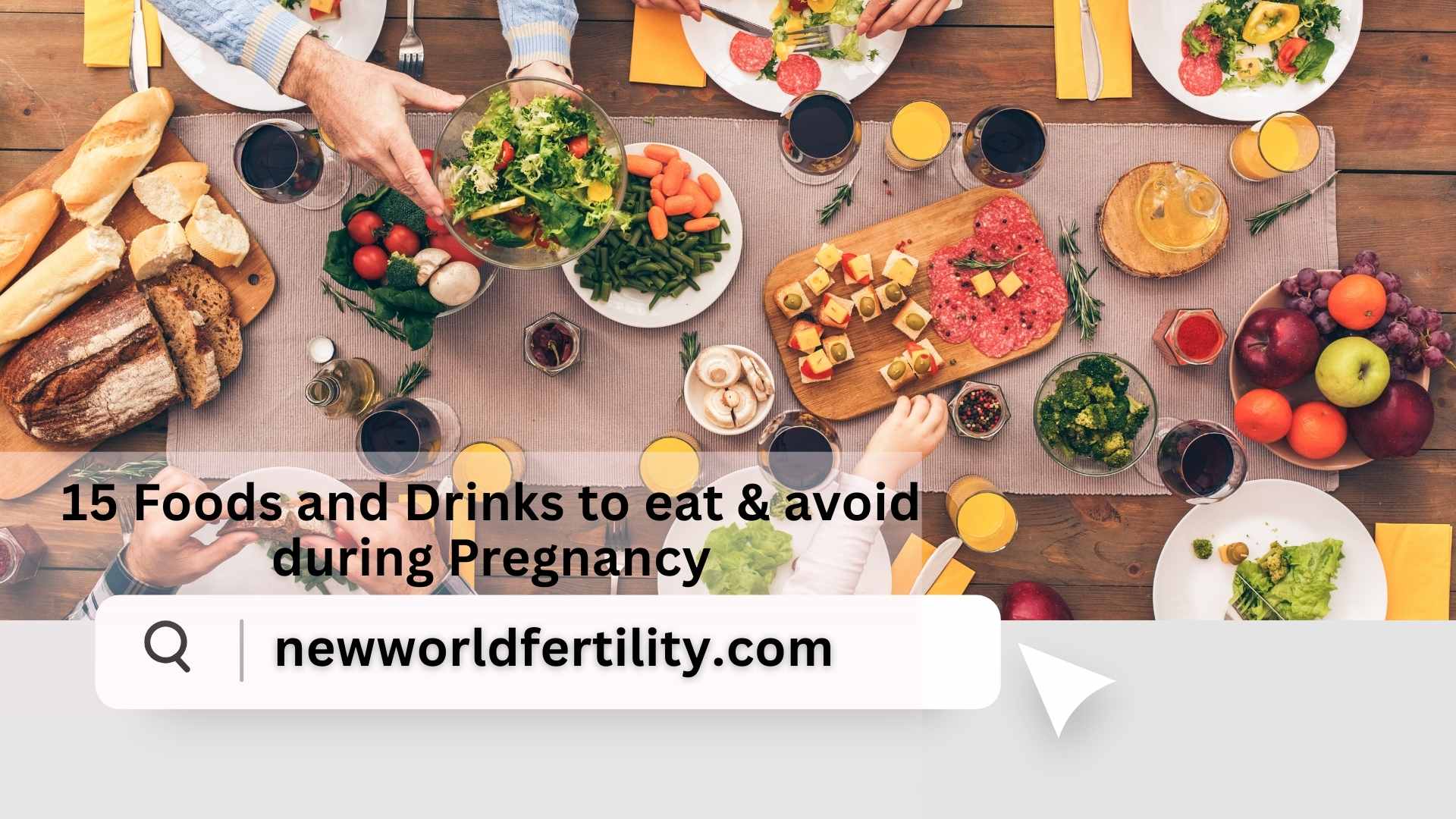15 Foods and Drinks to Eat & Avoid During Pregnancy
Pregnancy is a beautiful time in a woman's life. It is also a time when it is important to be extra careful about what you eat and drink. Your diet can have a big impact on your health and the health of your baby.
There are certain foods and drinks that you should avoid during pregnancy. These foods and drinks can be harmful to you and your baby. Other foods and drinks are essential for your health and the health of your baby.
Here is a list of 15 foods and drinks to eat and avoid during pregnancy:
Foods to eat:
1. Folic acid: Folic acid is a type of B vitamin that is essential for the development of your baby's brain and spinal cord. You should eat at least 400 micrograms of folic acid per day. Good sources of folic acid include leafy green vegetables, beans, lentils, and fortified cereals.
2. Iron: Iron is essential for the development of your baby's blood. You should eat at least 27 milligrams of iron per day. Good sources of iron include red meat, poultry, fish, beans, lentils, and fortified cereals.
3. Calcium: Calcium is essential for the development of your baby's bones and teeth. You should eat at least 1000 milligrams of calcium per day. Good sources of calcium include milk, yogurt, cheese, fortified orange juice, and dark green leafy vegetables.
4. Vitamin D: Vitamin D is essential for the absorption of calcium. You should eat at least 600 international units of vitamin D per day. Good sources of vitamin D include fatty fish, fortified milk, and fortified cereals.
5. Omega-3 fatty acids: Omega-3 fatty acids are essential for the development of your baby's brain and eyes. You should eat at least 250 milligrams of omega-3 fatty acids per day. Good sources of omega-3 fatty acids include fatty fish, walnuts, and flaxseed.
6. Protein: Protein is essential for the growth and development of your baby. You should eat at least 71 grams of protein per day if you are pregnant and 92 grams of protein per day if you are breastfeeding. Good sources of protein include meat, poultry, fish, beans, lentils, eggs, and dairy products.
7. Carbohydrates: Carbohydrates are essential for energy. You should eat at least 175 grams of carbohydrates per day if you are pregnant and 210 grams of carbohydrates per day if you are breastfeeding. Good sources of carbohydrates include whole grains, fruits, and vegetables.
8. Fluids: You should drink at least 8 glasses of fluids per day. Good sources of fluids include water, milk, juice, and herbal tea.
Foods to avoid:
1. Raw fish: Raw fish can contain parasites that can be harmful to you and your baby.
2. Unpasteurized milk and cheese: Unpasteurized milk and cheese can contain bacteria that can cause food poisoning.
3. Fish with high mercury levels: Fish with high mercury levels, such as shark, swordfish, tilefish, and king mackerel, can be harmful to your baby's nervous system.
4. Caffeine: Caffeine can cross the placenta and affect your baby's heart rate and breathing.
5. Alcohol: Alcohol can damage your baby's brain and spinal cord.
6. Raw eggs: Raw eggs can contain salmonella bacteria.
7. Soft cheeses: Soft cheeses, such as Brie and Camembert, can contain listeria bacteria.
8. Lunch meats: Lunch meats, such as hot dogs and deli meat, can contain listeria bacteria.
9. Canned tuna: Canned tuna can contain high levels of mercury.
10. Organ meats: Organ meats, such as liver, can contain high levels of vitamin A, which can be harmful to your baby.
Additional tips:
Eat a variety of healthy foods: This will help you get all of the nutrients you need.
Cook your food thoroughly: This will help to kill any harmful bacteria.
Wash your fruits and vegetables carefully: This will help to remove any pesticides or dirt.
Avoid eating processed foods: Processed foods are often high in unhealthy fats, sugar, and sodium.
Listen to your body: If you are not feeling well, stop eating and drink plenty of fluids.
Conclusion
Maintaining a healthy diet is vital for both mother and baby during pregnancy. By including nutrient-rich foods and avoiding those that can pose risks, expectant mothers can support their baby’s development and ensure a smoother, healthier pregnancy journey. For personalized dietary advice, consult the experts at New World Fertility Centre, where maternal and fetal health is prioritized throughout your pregnancy journey.
FAQs
1. What are the best foods to eat during pregnancy?
The best foods to eat during pregnancy include leafy greens, whole grains, dairy products, lean meats, eggs, lentils, nuts, seeds, berries, avocados, and sweet potatoes. These foods provide essential nutrients that support both maternal health and fetal development.
2. Are there any specific drinks that are recommended during pregnancy?
Water is the best drink to stay hydrated. Other healthy options include milk (for calcium and vitamin D), herbal teas (consult your doctor for safe options), and fresh fruit juices (in moderation).
3. Why is folic acid important during pregnancy?
Folic acid is crucial for fetal neural tube development, helping to prevent birth defects. It’s recommended to consume foods high in folate, such as leafy greens, beans, and fortified cereals.
4. What types of fish are safe to eat during pregnancy?
Low-mercury fish like salmon, shrimp, and cod are safe to eat during pregnancy. It’s best to avoid high-mercury fish like shark, swordfish, and mackerel.
5. Can I consume caffeine while pregnant?
Moderate caffeine intake (up to 200 mg per day) is generally considered safe. However, it's important to limit sources like coffee, tea, and energy drinks to avoid potential risks to the fetus.

 Sep-16-2025
Sep-16-2025